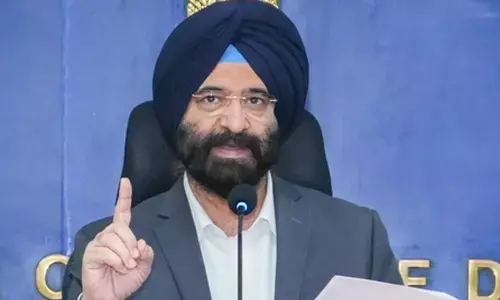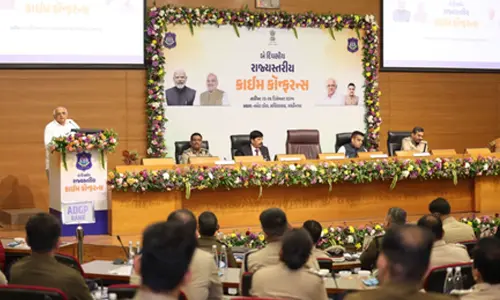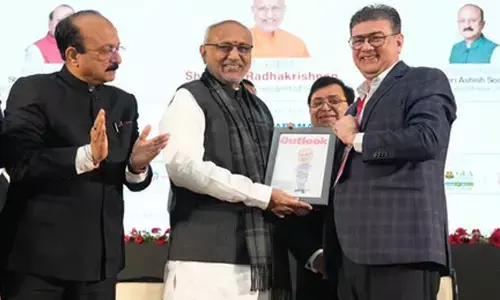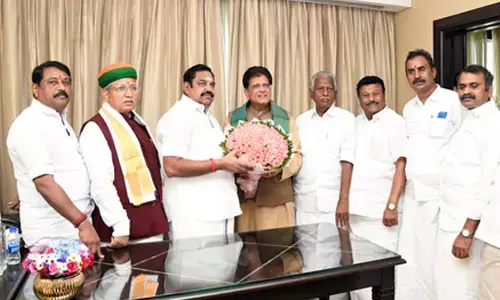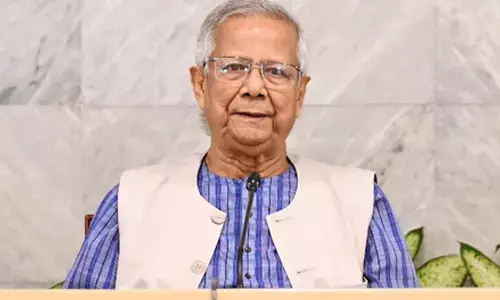Hindu-satya must replace Hindutva for a true renaissance
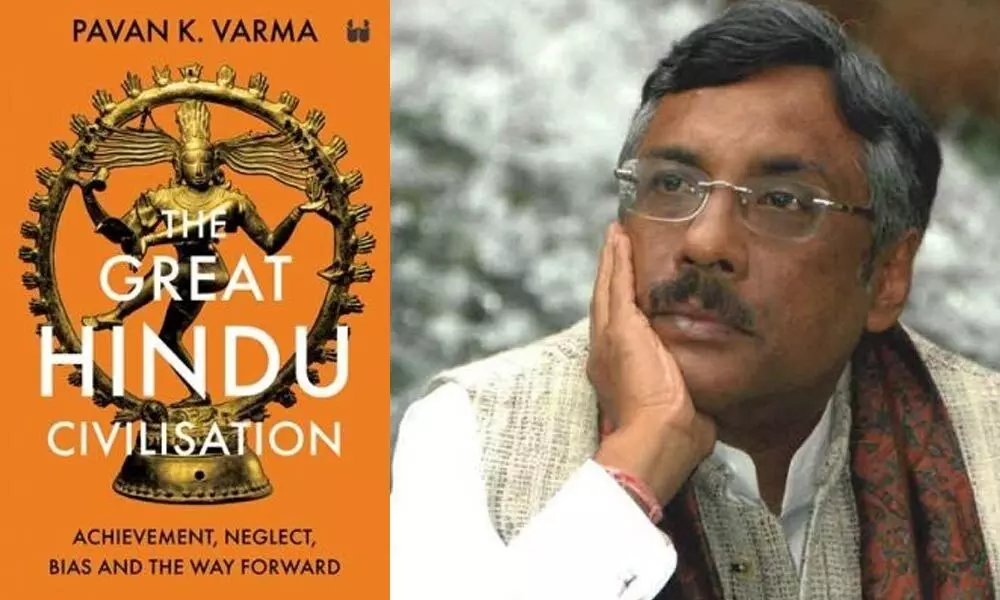
Pavan K Varma
The fact that a great Hindu civilisation existed, and continues to exist, is not in doubt, Varma writes in "The Great Hindu Civilisation - Achievement, Neglect, Bias And The Way Forward"
Hindus need a true renaissance but for that Hindu-satya (the truth about Hinduism) must replace the term Hindutva, which stands discredited because of "illiterate bigotry" and reforms must be pursued within Hinduism, author-scholar-diplomat Pavan Varma writes in a seminal new book that is brilliantly argued, hard-hitting and wise -- indeed, an essential treatise for our times.
"The fact that a great Hindu civilisation existed, and continues to exist, is not in doubt," Varma writes in "The Great Hindu Civilisation - Achievement, Neglect, Bias And The Way Forward (Westland) and what Hindus need today "is a true renaissance, in keeping with its essential nature, intellectual grandeur and remarkable refinements".
"The term Hindutva stands discredited because of the illiterate bigotry that is sanctioned in its name. Hindutva must be replaced by Hindu-satya, the truth about Hinduism. The first step of Hindu-satya is to pursue reform within Hinduism," Varma, a former Indian Foreign Service officer and the author of a series of classics on Hinduism and the Indian middle class, writes.
The time has come, Varma maintains, "for major reforms within Hinduism that allows the actual conduct of Hindus in their everyday lives to match the civilisational legacy they are should be proud of", adding that this cannot be achieved only through laws, "especially in an unequal society where the more vulnerable are unable to seek their protection in the same measure as the more powerful are able to flaunt them".
Noting that these reforms can only happen when Hindus themselves are convinced of their need, Varma writes: "Hindus must bridge the gap between the achievements of the past and the imperatives of the present. The history of Hindus may be littered with pioneering landmarks in the areas of philosophy, spirituality, arts and science, but the same history is marred and loses credibility in the face of indubitable empirical evidence of rampant inequity and discrimination today."
Even worse, the author states, are attempts to justify this inequality and exploitation in the name of sanctioned tradition.
"No tradition, however, hoary, can militate against the basic dignity of human beings and the egalitarianism which is the hallmark of modern and progressive societies. If those who want to work for Hindu revivalism would devote their real energies to working for much-needed change in Hindu society, they would contribute far more to the proud reassertion of their faith," Varma writes.
In this cause, they would find enough material within Hinduism and the goal must not be to blindly resurrect the ancient past but to recreate Hindu society in the present by drawing upon the abundant wisdoms in Hinduism in the past.
A second imperative is for Hindus to become more knowledgeable about their own civilisation.
"The blunt truth is that Hindus, in general, are as proud of their past as they are ignorant of exactly what it is. Very few among them have taken the trouble to read the basic texts of their faith. Nor do they know, except very superficially, about the achievements of their legacy in the secular realm," Varma writes.
This is partly so because Hinduism is not a prescriptive faith and allows its followers to practice it almost in any manner they choose. Most Hindus rightly see their religion as a way of life of which they can be proud participants even if they don't know the profundities of its philosophical tradition and the deep symbolism behind ordinary rituals.
"Partly, it is also because the educational curriculum is deeply flawed and does not include information about ideas and concepts and achievements, which it should; and partly because it is parents and family members who could impart such knowledge are as ignorant as their wards. When this happens, a reverse glorification of the past sits comfortably with the absence of the vibrant intellectual energy that should be its real consequence," Varma maintains.
Lamenting that the cultural and intellectual reclamation that should have followed Independence in 1947, did not occur, he writes that had this happened "in an enlightened manner without xenophobia or bigotry, we would by now have a generation that knows much more about the real achievements of Hindu civilisation. Instead, we are now witnessing a movement of Hindu revivalism which is blatantly geared towards short-term political dividends, and replete with intolerance and hatred that is an anathema to the very spirit and substance" of Hinduism.
This brings us to the jeopardy of "superficially informed Hindus" not being in a position to "confront the illiterate bigotry of the self-anointed new 'protectors' of Hinduism", the author writes.
"Knowledge is a great enabler. Anyone who has studied Hinduism, or acquired even a basic familiarity about its lofty eclecticism and deep celebration, would laugh out of the room those who seek to conflate this great faith with only violence and exclusion. But Hindus, disarmed by lack of knowledge, become cannon fodder more easily in the hands of ignorant evangelists," Varma argues.
The real Hindu renaissance, he writes, "will take place when Hindus in vast numbers make the effort to rediscover their religion and civilisation. That knowledge will enable them to resurrect Hindu society in terms of true renewal, a renewal of spirit and substance, and allow them to build, along with all the other great faiths that have a home in this ancient land, a modern India that is democratic but also rooted in the great wisdoms of its past".
With that knowledge, "let India awake to its future greatness -- modern, progressive, prosperous, humane, tolerant, inclusive" Varma maintains.
Delivered through six chapters spread over 403 pages, inclusive of extensive Notes and an Index, this book is truly a wake-up call that if Hindus "do not know about their own civilisational legacy, their authenticity as Hindus -- based on knowledge -- is stunted and reduced to ritual tokenism".









